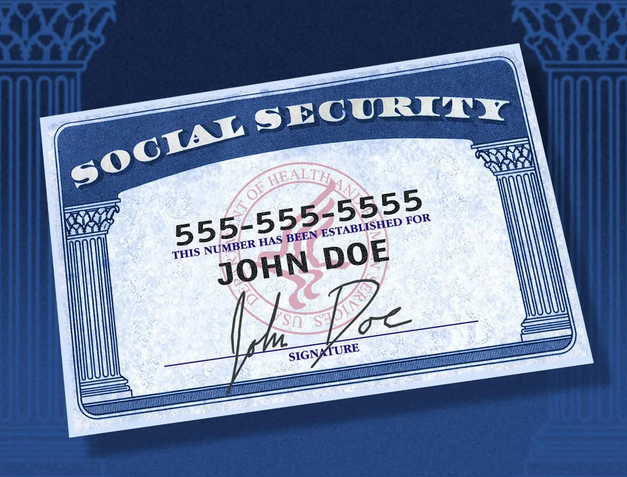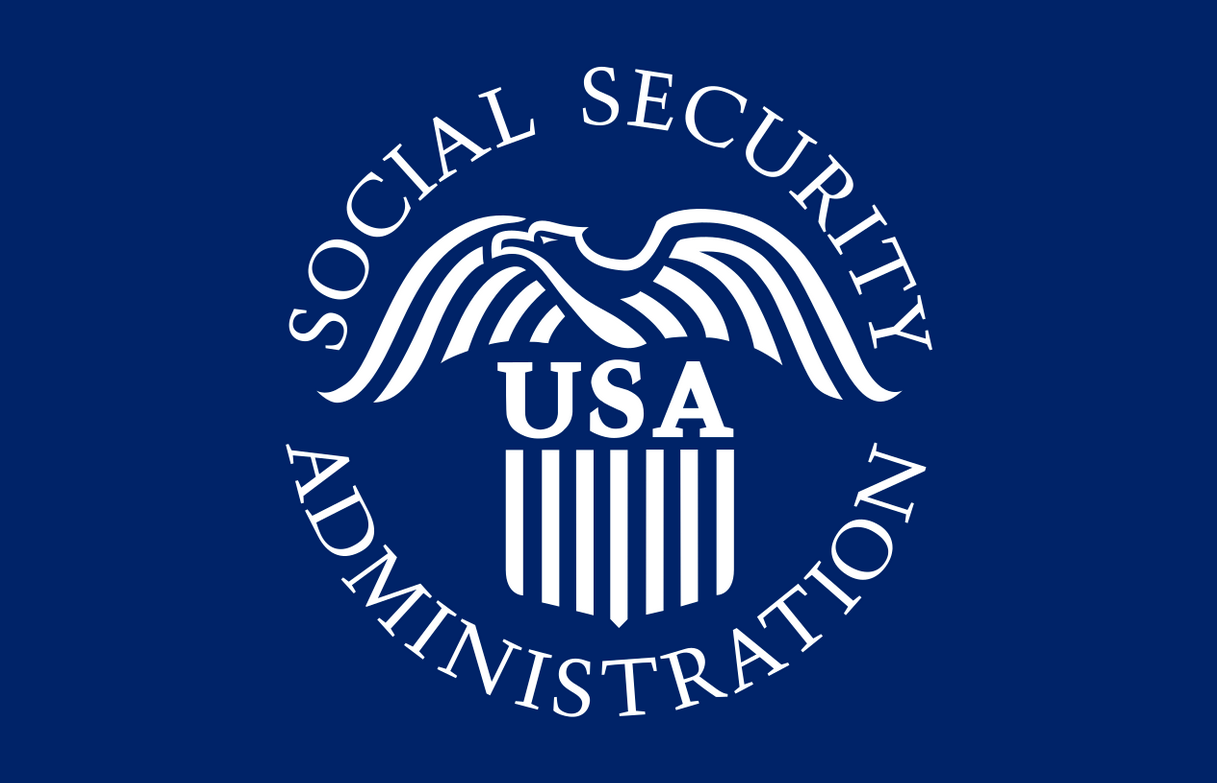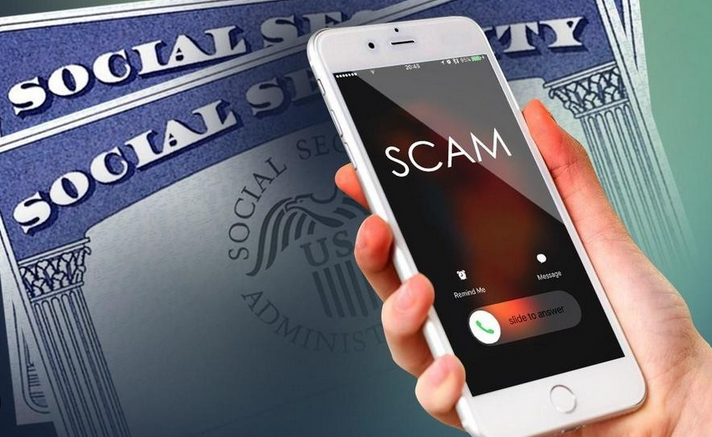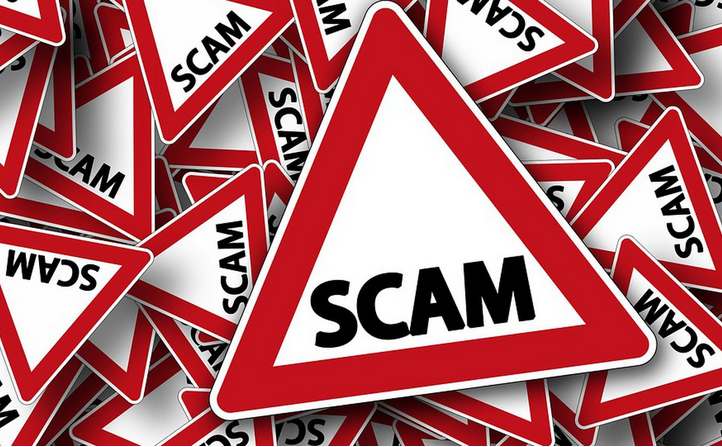Common Social Security Scams You Need to be Aware of

What Is Our Social Security Number?
The small rectangular piece of banknote paper which bears your legal name and a very important nine digit number is known as our social security card. This is a number which is a vital piece of identifying documentation that is used to help track our financial earnings. Due to tax laws, most people's parents will apply for their child’s Social Security number before they even leave the hospital after birth.
It used to be the case that people might not apply for their Social Security card until they were ready to start work. These days however things have changed. In order to be able to claim your children as dependents on your taxes they have to have been issued a valid Social Security number. This is why most hospitals will actually assist new parents in making the application on their child’s behalf.

So your Social Security card will be the first identifying document that most people have. The main reason for the Social Security card and subsequent unique nine digit number is to identify its owner for taxation purposes. You must possess a Social Security card to find legal employment in the United States.
The card allows the U.S. government to withhold Social Security insurance taxes from your paychecks which go into a universal fund. It is from this fund that state pensions are drawn and that the money for disability payments are also found.
What Is the Social Security Administration?
The Social Security Administration (SSA) is an independent government agency that administers social security. It is an insurance program that consists of retirement, disability and survivor benefits. In order to qualify for these benefits most workers pay into the system through social security taxes.

The head offices of the Social Security agency are located in Woodlawn, Maryland and are referred to as the Central Office. There are tens of thousands of workers employed by the social security agency and it is the largest government program in the United States.
It is estimated that by the end of the 2022 fiscal year the agency will have paid out $1.2 trillion in benefits to 66 million citizens and legal residents of the United States. An additional 61 billion is expected in SSI benefits and 7.5 million to low-income individuals.
This government agency is a vital part of the country's economy and without it millions of already struggling Americans would have nothing. It is a program that many have paid into for decades in preparation for retirement and as an insurance policy against sudden disability.
History of the Social Security Agency
On August 14th 1935, President Franklin D. Roosevelt signed the Social Security Act into law as part of his New Deal initiative. This led to the creation of the Social Security Board (SSB), a presidentially appointed group of three executives tasked with overseeing the social security program.
With zero budget, staff or even furniture the SSB finally obtained funding from the Federal Emergency Relief Administration. It was on October 14th 1936 that the first Social Security office opened its doors in Austin, Texas.
In January of 1937 Social Security taxes were first collected. Just a few years later the first Social Security check was issued to Ida Mary Fuller of Battleboro, Vermont. Ida’s check was dated January 31st 1940 and she received $22.54.

The SSB in 1939 merged with the U.S. Public Health Service, the Civilian Conservation Corp and other government agencies to become the Federal Security Agency. In 1846 under President Harry S. Truman the SSB was named the Social Security Administration SSA.
In 1953 the Federal Security Agency was dismantled and the SSA was placed under the banner of the Department of Health, Education and Welfare. Finally in 1994 President Bill Clinton made the Social Security Administration an independent body once again.
What Are Social Security Related Scams?
Most of us are aware of the importance of our Social Security information because it relates to our taxes and later in life important benefits for retirement or potentially disability. Criminals use the knowledge that Social Security is so important by claiming to represent the Social Security administration (SSA) or some other government agency.

Scammers may use phone calls, emails, text messages, messenger apps and physical mail to contact their potential victims. They will often claim to be representatives of the SSA or a government agency associated with the program. They may use a legitimate name of someone who works at the authority they claim to represent so a google search might even support the validity.
How to Spot a Scam
We may think of ourselves as pretty savvy and feel we could easily spot a scam but these criminals can be very practiced and often convincing. There are a few basic signs of a scam according to the SSA these are:
- The potential scammers will pretend to be from a legitimate government agency, one that will check out were you to search it online. This is in order to gain trust and convince the potential victim that they have authority to contact you and do what they are doing.
- A scam will usually see the contacting party claiming there is a problem or prize that their victim must take action to avert or claim.
- Scammers will request payment in specific and sometimes unusual ways for example gift card numbers.
- Scammers will place pressure when contacting victims expressing a need for urgency. This is to rush their target into taking action before they stop to consider if this is all legitimate.
What Are Common Scammer Tactics?
Social Security scammers have a number of tactics they can use to convince and scare their victims into doing what they want including:
- Threat of legal action or arrest if payment for their bogus claims is not made straight away
- Threats that your Social Security number can be suspended
- Scammers may claim that you need to pay a fee for a recent law change which may benefit you financially. As an example if a cost-of-living adjustment (COLA) has been passed into law they may do a push to try and get Social Security beneficiaries to think they need to pay a fee for it to apply to them.
- They may pressure their potential victims to take immediate action including paying bogus fines or handing over sensitive financial or personal information.
- They often require payment via gift cards, prepaid credit card, wire transfer, cryptocurrency or mailed in cash (real social security agencies would not request payment by any of these methods).
- Some of these scammers may try and contact you on social media websites. This is something that legit agencies would never do.
Tricks Scammers Use to Seem Legitimate
Scammers are getting smarter and more dangerous making this an even more concerning issue. They will often use certain tactics to make them seem even more legitimate such as:
- They may use actual names of people who work for the SSA or the Office of the Inspector General. This means you could possibly do a search online and find out that these people actually do work for the authority claiming to contact you.
- Scammers today can spoof phone numbers so you might search the number that called you and it may be from the organization it claimed to be. They can even spoof the numbers of local police departments. Always call the authority that claims to have called you to determine if they did indeed reach out. Criminals can spoof how the number appears on your phone but can not receive a call made to those numbers.
- They may send very official looking documents through the mail or over email which can appear very convincing.
Spotting Imposter Social Media Pages
As mentioned earlier in this post, social media is a conduit that scammers will use. They will create a convincing looking page with imagery and related jargon which makes it look like the official page of a government agency.

They will use this page to private message other users claiming to be doing so in an official capacity demanding information and money. There are some simple indicators which should tell you the page is fake which are:
- Number of followers. A government page should have thousands if not millions of followers. A small following means it is likely not real.
- Poor spelling and punctuation, it may not be perfect but often these scams originate in other countries meaning the fraudsters may speak English as a second language. An official government page would be checked for spelling and grammar
- Page links to non government websites
- Advertisements to government forms not associated with the SSA
- The social media handle does not match any found on the website for the government agency the page claims to represent
- If the page sends employee credentials as proof of being legitimate this is a big give away. This is actually against the law and they would not do this.
Avoiding the Scam
Take note of this section and pass on the information to your older relatives who may not be online as they may be the most at risk from scammers. This is what you should do if you have reason to even suspect a scam.
Do not get rattled. The communication is designed to scare you and make you act without thinking. If you find yourself feeling overly emotional, take a deep breath and contact someone you trust.
Hang up or ignore the message. If it feels like a scam just hang up the phone or tell the caller you will call the authority back. They will try and stop you and this will confirm it is a scam. Government agencies do not just contact you out of the blue demanding money and if they reach out to you they should not need your personal details.
Know the untraceable funds. As mentioned earlier, scammers will ask for payment with a gift card, prepaid debit card, cryptocurrency, wire transfer, money transfer, or by mailing cash. This is because it is hard to trace these methods should the real authorities go after the scammers.
Protect your personal information. Scammers will contact you and may even know some of your basic information. They may claim to a government agency or even the police but do not give them any further information in response because again official authorities will not make such requests.
Spread the word. If you receive a scam message or call, take to social media and share it with friends, family and local community groups. When we help each other spot scams we can make it harder for the criminals.
Report the scam. This is important because shedding light on the scam can help others avoid being taken in. So if you feel you experienced an attempted scam report it to the Office of the Inspector General at oig.ssa.gov/report.
Final Thoughts
Scammers will try and contact us through several methods and may even seem very legitimate. They will always use the threat of some kind of punishment like arrest, suspension of your Social Security number or some other consequence. They will also demand rapid resolution of the issue usually through unusual methods of payment.
If you suspect a scam, cut contact with the scammer and immediately contact the governing body or authority the scammer claims to be associated with. They may be able to clone phone numbers but you can still reach the legitimate authorities to check if the situation is real. Most of the time they will tell you they did not contact you.
Reference SSA Locator
If you use any of the forms, definitions, or data shown on SSA Locator, please make sure to link or reference us using the tool below. Thanks!
-
<a href="https://ssalocator.com/blog/common-social-security-scams-you-need-to-be-aware-of/">Common Social Security Scams You Need to be Aware of</a>
-
"Common Social Security Scams You Need to be Aware of". SSA Locator. Accessed on July 27, 2024. https://ssalocator.com/blog/common-social-security-scams-you-need-to-be-aware-of/.
-
"Common Social Security Scams You Need to be Aware of". SSA Locator, https://ssalocator.com/blog/common-social-security-scams-you-need-to-be-aware-of/. Accessed 27 July, 2024
-
Common Social Security Scams You Need to be Aware of. SSA Locator. Retrieved from https://ssalocator.com/blog/common-social-security-scams-you-need-to-be-aware-of/.